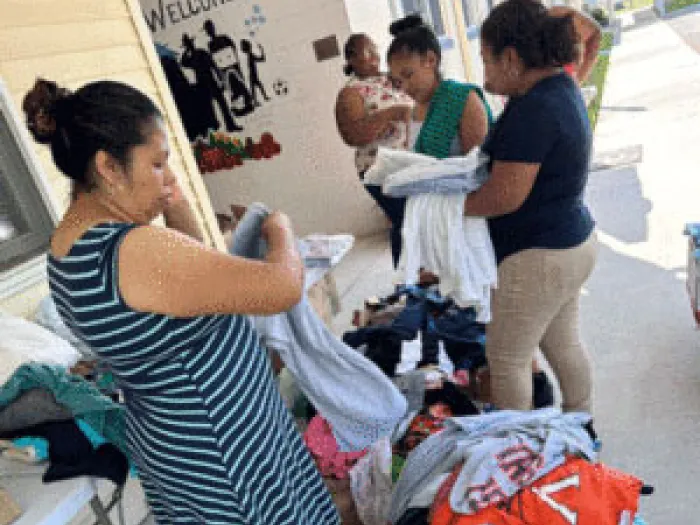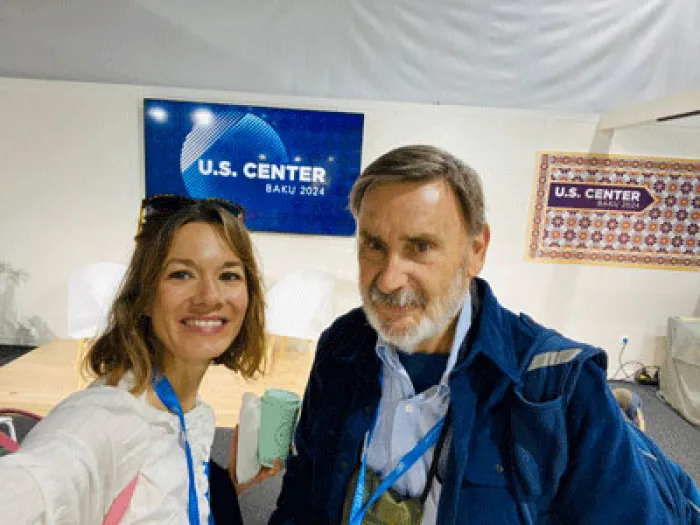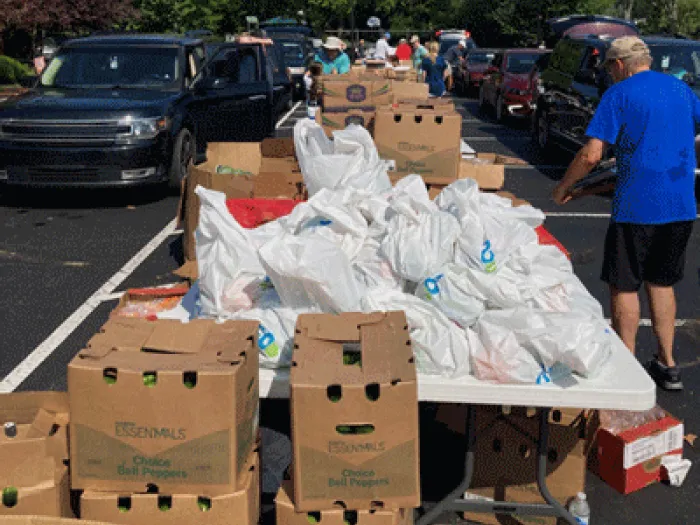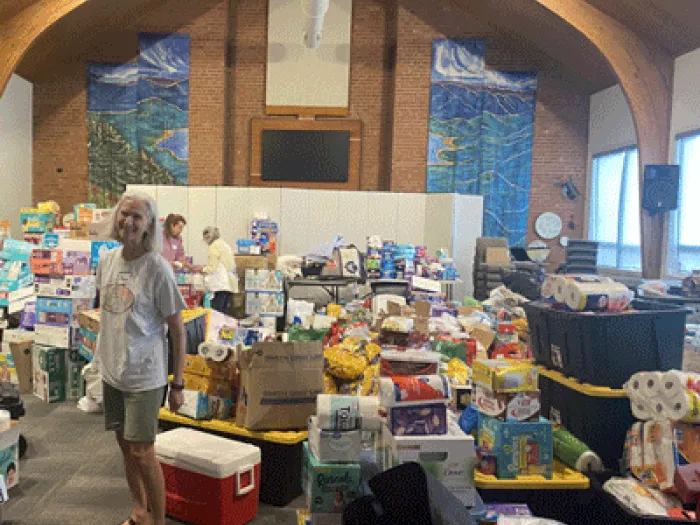‘Food Vision 2030’ calls for improved access to healthy food while supporting local farmers and food workers
The draft document is rolled out as part of the People’s Summit on Food Systems and Urban Agriculture, sponsored in part by the Presbyterian Hunger Program


LOUISVILLE — “Food Vision 2030: Food Justice is Racial Justice,” the draft document rolled out and explored during the recent People’s Summit on Food Systems and Urban Agriculture sponsored in part by the Presbyterian Hunger Program, maps out “strategies and organizing efforts necessary to create a truly just city and food system” in Louisville, Kentucky.
Held Sept. 13 in Louisville, the day-long People’s Summit included two delicious meals and two sets of workshops following three tracks: environmental and climate justice, just and resilient food economy and healthy local food for all, which aligned with the vision’s three main principles. Read reporting by Presbyterian News Service on a pair of workshops offered during the People’s Summit here and here.
Louisville’s Food Vision 2030, informed by two years of community collaboration supported by the U.S. Department of Agriculture, focuses on addressing the stark differences in food access based on residential ZIP codes. Research led to developing the Food Vision, which outlines how to improve access to healthy food, particularly for low-income and marginalized communities, while supporting local farmers and food workers.

Key strategies for achieving the vision include supporting urban agriculture, incentivizing local food production and enacting policies that improve the wages and working conditions of food workers.
“While the Food Vision centers local action, federal programs like SNAP, WIC and funding from the USDA are essential for creating lasting change,” the vision states. The document also calls for new local and state initiatives, including eliminating reduced-price meals in favor of universal free meals in schools, as well as changing food-related funding priorities at the state and federal levels.
“Through community engagement, policy advocacy and sustainable practices, the vision aspires to build a food system that is just, equitable and resilient in the face of future challenges,” the vision states.
One paradox of the food situation in Louisville and across the country is that the 21 million people in the United States who grow, prepare, transport, sell and serve food often can’t afford to buy it. But in cities including Detroit, Minneapolis and Kansas City, urban agriculture has transformed whole neighborhoods into spaces of plenty — plenty of food, friends and safety, according to the document.

Each of the goals contained in the vision is fleshed out with an explanation of “how we do this” on three different levels: through community-led partnerships and actions, and with partnerships, policies and actions by both local and state government.
The goals for the “healthy local food for all” are:
- Strengthen systems to get healthy local food to hungry people
- Ensure access to fresh, local food in ways that especially benefit producers and eaters of color and low-income residents.
The goals for establishing “a just, resilient and sustainable food economy” are:
- Support the development of independent and locally owned food businesses in historically redlined neighborhoods.
- Improve pay and working conditions for all people, especially those working in the food system.
- Strengthen urban and regional food production and infrastructure.
- Use food systems planning to build resilient communities in the face of climate and other emergencies.

The goals for achieving environmental justice are:
- Reduce greenhouse gas emissions through food reuse and recycling. Sub-goals are to reduce food waste by composting, reduce food waste by redistributing surplus to those in need, and integrate livestock into food waste reduction and landscape management plans.
- Incorporate farming into plans that make the city cooler and reduce flooding. Subgoals include cooling down the city by making it easier to grow food and completing an equity review of all of the city’s codes, ordinances and policies relating to food.
- Reduce exposure to toxins from air, soil and water through food system change.
“While this document emphasizes changes at the community, city and state levels, it acknowledges the importance of federal policies in supporting urban agriculture, addressing food insecurity, and promoting equitable access to food,” the vision concludes, specifically mentioning federal food programs and environmental regulations as “key to the long-term sustainability and resilience of Louisville’s food systems and the broader goals of this vision.”
You may freely reuse and distribute this article in its entirety for non-commercial purposes in any medium. Please include author attribution, photography credits, and a link to the original article. This work is licensed under a Creative Commons Attribution-NonCommercial-NoDeratives 4.0 International License.




